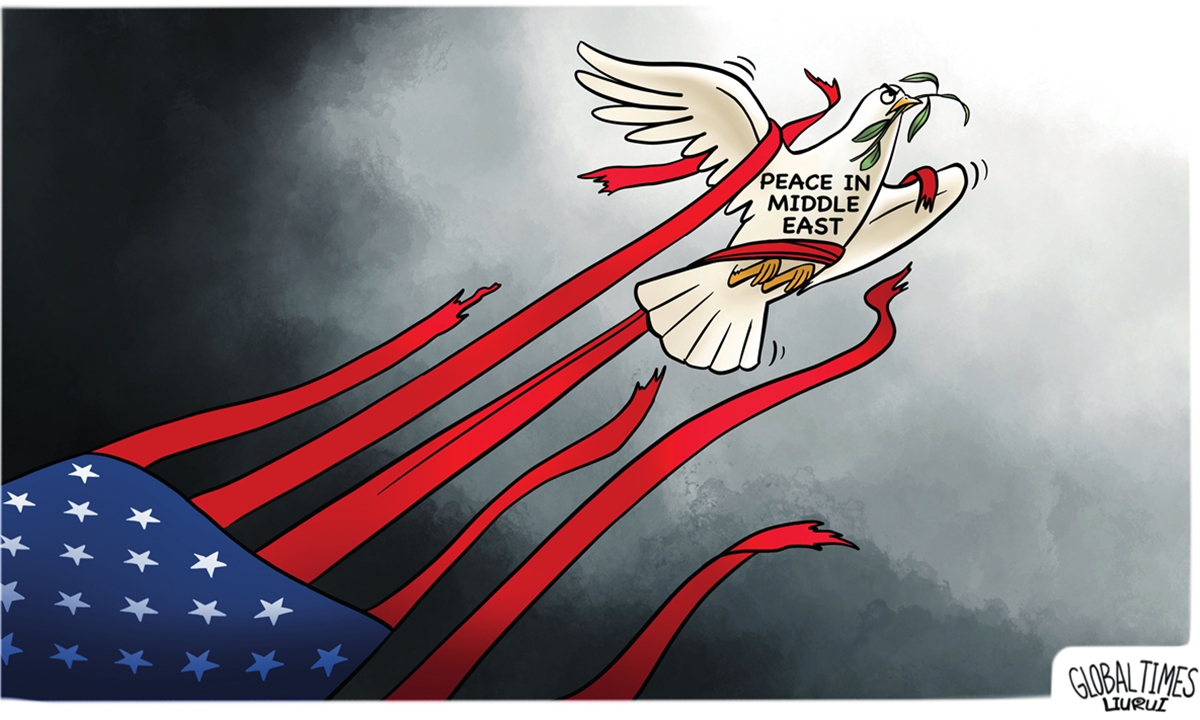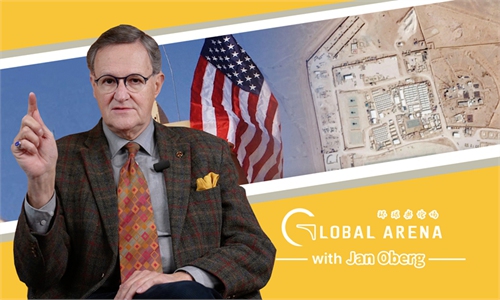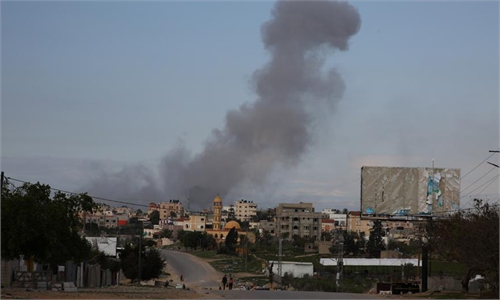
Illustration: Liu Rui/GT
The conflict between Israel and Hamas in the Gaza Strip is ongoing, and a new round of conflict between Iran and Israel has erupted. On Saturday evening local time, Iran launched missile and drone attacks on Israeli territory in retaliation for an Israeli airstrike on its embassy in Syria on April 1. As a result, the situation in the Middle East appears to be sliding toward more serious turmoil. According to the Associated Press on Thursday, Israel is vowing to retaliate against Iran, risking further expanding the shadow war between the two foes into a direct conflict.
Since its outbreak in October, the current round of the Israel-Palestine conflict has continued to affect the development of the regional situation and has become the "eye of the storm" of regional conflicts. On one side, Israel's continuous cross-border attacks on Shiite militias in Syria, Hezbollah in Lebanon and other armed groups have undermined the sovereignty and territorial integrity of these countries, leading to continued tension in the Israel-Lebanon-Syria border area. On the other side, Yemen's armed Houthi forces have attacked Israeli and American ships sailing in the Red Sea in support of resistance forces in the Gaza Strip, while the US has deployed fleets in the Red Sea to provide military escort and conducted multiple airstrikes on Houthi military sites, leading to an escalation of the Red Sea crisis.
The failure of the US to effectively bear and fulfill its international responsibilities is one of the root causes of the current turmoil in the Middle East. For a long time, the US has practiced double standards in Middle Eastern affairs, turning a blind eye to Israel's expansion of settlements in the West Bank and East Jerusalem. When Palestinians in these regions resisted Israeli occupation and armed groups in the Gaza Strip attacked Israel's blockade, the US defined these actions as "terrorism," and the related organizations were labeled as "terrorist organizations."
During the current round of the Israel-Palestine conflict, the US has not paid enough attention to alleviating the humanitarian crisis in the Gaza Strip. It has provided various types of assistance to Israel, while its donations and humanitarian aid to Palestinians are far from sufficient. The US has supported and even protected Israel's military actions in the Gaza Strip, and it has not condemned or restrained Israel's attacks on the Iranian embassy in Syria. When Iran launched retaliatory attacks against Israel, the US immediately stood by Israel's side and rallied other Western countries to condemn Iran's military actions.
The failure of the international peace mechanism has led to the continuous expansion of the negative impact of the Israel-Palestine conflict. The US-led international system is unable to effectively address regional conflicts and risks or resolve the conflicts and differences among the parties involved. Negotiations between Israel and Hamas are progressing slowly, the hostility between Iran and Israel remains unresolved, and conflicts between Israel and Lebanon, as well as Syria, continue.
On the one hand, the US is "mediating" in the Middle East, claiming to want to facilitate a cease-fire, while on the other hand, it continues to provide weapons and equipment to Israel and defends Israel's actions internationally, leading to a contradiction that makes it difficult to resolve the conflict in the short term. Faced with the possibility of escalating conflicts in the Middle East, the double standards and unilateralism of the US and some other Western countries further exacerbate the regional situation.
By failing to uphold its international responsibilities and obligations, the US is exacerbating the humanitarian crisis in the region.
Only by abandoning double standards, quickly achieving a cease-fire and finding a long-term solution based on the two-state solution for the Israel-Palestine conflict can we effectively alleviate the tension in the Middle East. This can also lead to new breakthroughs in achieving lasting peace in the region.
The author is a distinguished professor at the Research Center for the Belt and Road of Lanzhou University.opinion@globaltimes.com.cn



